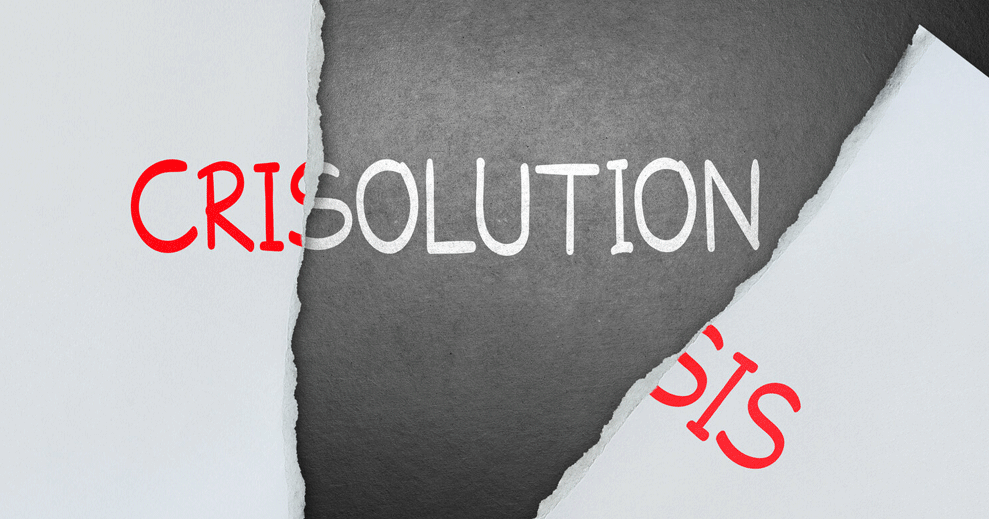
As CEO Confidence Plummets Worldwide, A Crisis Communications Plan Is Vital
Crisis plan prepares organizations for the inevitable and maintains brand reputation.
The availability of information and widespread use of social media has made it easier than ever for a crisis to arise. Whether it’s a data breach, bad publicity, or spread of misinformation, crises explode quickly and have far-reaching consequences to an organization if not dealt with properly.
The recent Confidence Index by the Worldcom Public Relations Group, of which PCI is a founding member, shows that CEO confidence in their brand and reputation has plummeted worldwide, with confidence of business leaders in the United States down a staggering 51 percent. One clear topic of concern is leaders worrying about their ability to protect their corporate image and brand reputation when a crisis breaks out. While crises can rarely be predicted, having a crisis communications plan ready to go reassures company leaders that they will protect their brand when one emerges.
Crisis Averted During Data Breach
When a leading global manufacturer contacted PCI after it discovered that its database of distributors and their customers had been compromised due to a security breach, the agency leapt in to create a crisis management plan. The breach had the potential to affect more than 18,000 records, and with distributors in all 50 U.S. states, the company knew consequences could be far-reaching.
Working with the manufacturer’s legal team, PCI crafted a communications plan, which outlined:
-
Important audiences
-
Key messages to explain what happened, reassure affected distributors and offer them assistance in recovering from the cyber breach
-
Protocol for employees to follow when responding to inquiries from distributors
At every step, PCI senior counselors worked with the manufacturer’s CEO, senior leadership and attorneys to create notification letters, internal and external messaging, and a phone script for customer service representatives.
As PCI carefully planned and prepared strategies and distributed clear and direct messaging, the company was able to recover smoothly from the breach. They experienced few complaints and no disruption of business. With a carefully executed communications plan, the crisis was avoided and the company’s reputation remained intact.
Always Have a Plan
Like a safety net, a crisis communications plan is an essential part of any business strategy. Crises can not only damage reputation, but also erode the trust of members and other stakeholders and disrupt your business. A complete plan will include strategic ways to prepare for, manage, and recover from a crisis.
A communications plan has many far-reaching benefits, including:
-
Readiness to protect the reputation of your organization
-
Maintaining trust of your key audiences
-
Keener awareness of crisis risks in your organization
-
Greater ability for early detection of a crisis
-
Faster response
-
Quicker recovery
Social Media During a Crisis
An organization’s social media channels are one of the most important aspects of a communications plan. Due to the rapid spread of information and immediate access to an organization, a negative message that warps the truth or tells your brand story incorrectly can spread like wildfire and destroy your reputation. A strong social media strategy as part of a crisis communications plan will combat this.
An effective social media strategy will include:
-
Employee social media policy
-
Social media monitoring schedule to keep track of what is being said about your organization
-
Assigned responsibilities among your team for each digital channel
-
A social media response matrix to help guide appropriate actions for various situations
Maintaining a social media strategy as part of a larger crisis communications plan and routinely reviewing it with your employees gives leaders the confidence that they are prepared to keep their brand and reputation safe.
Post-Crisis Recovery
Once the crisis has subsided, it may seem like the time to take a break from the issue and resume business as usual. The reality is that the work to repair damage to your reputation is just beginning. The effects of a crisis can linger for a long time, and this is a vital time to turn to your crisis communication strategy to evaluate the damage done to the public perception of the organization’s brand and take steps to recovery.
After conducting a post-mortem debrief and analysis, leaders may need to implement organizational or procedural changes, adopt an inspirational message to renew organizational confidence, communicate a commitment to rebuild any damaged relationships, and focus on internal communications to bolster support among employees. Read more here to learn the six key steps to recovering your reputation after a crisis.
If leaders ignore or mismanage an emerging crisis, a good reputation that took years to build can be tarnished or destroyed in an instant. But when handled correctly, crises can spotlight inspired leadership, demonstrate leadership’s dedication to the organization, and show stakeholders sincerity and transparency.
PCI provides experienced crisis and issues management counsel that brings calm in crisis to clients whose success and bottom line depend on their reputation and public perception. To talk with us about how a strategic communications strategy can protect your organization’s reputation and prepare you for a crisis, email us at Lets_talk@pcipr.com.


